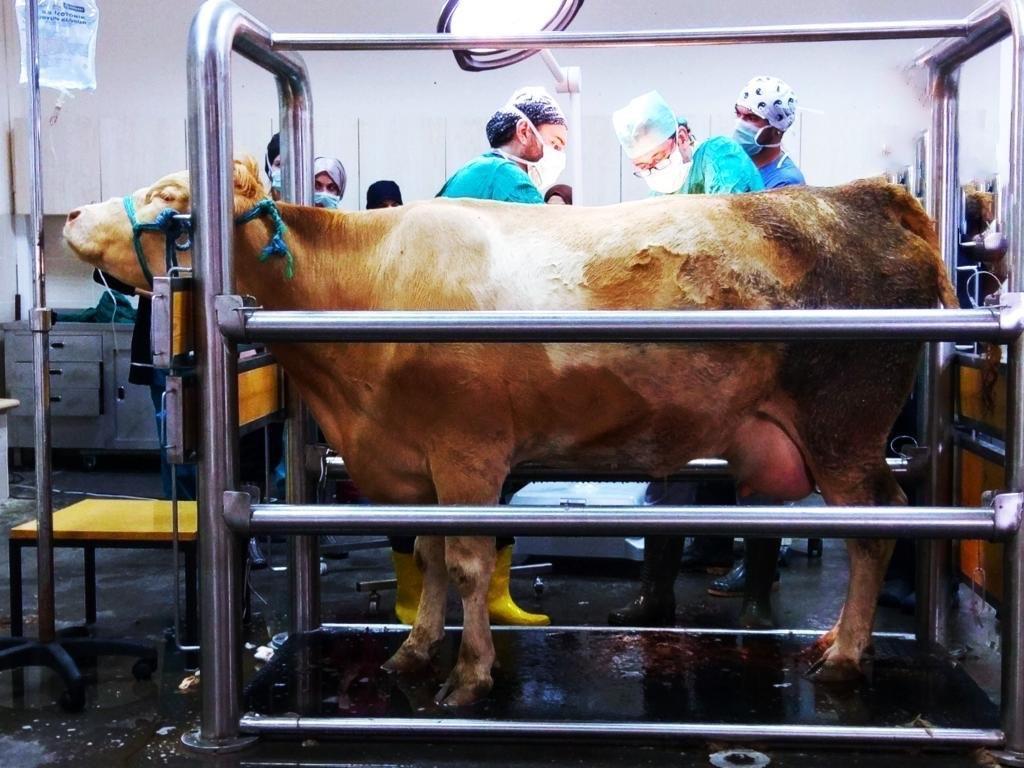
The animal hospital at Ondokuz Mayıs University in the northern province of Samsun serves as the hub for the treatment of injured animals throughout the entire Black Sea region, having attended to over 20,000 injured animals in the first nine months alone.
Established in 2015, this facility, one of the nation's most extensive examples, operates with a staff of 70 professionals and has performed over 1,000 surgeries within the initial nine-month period of this year.
Dr. Ümit Özcan, the deputy chief medical officer of the hospital, emphasized the surge in pet adoption amid the COVID-19 pandemic, correlating with an increase in patient numbers.
"In 2022, we had 25,000 patient visits, but that number in the first six months of this year. We anticipate it will be within the 30,000 to 35,000 range by year-end. This significant rise reflects the notable impact of the increased pet adoption, particularly in the wake of the pandemic."
Cats constitute 60 percent of the animals brought to the hospital, with the primary reason for seeking medical care being high-altitude falls, he said.
"In our region, there are a considerable number of incidents involving cats falling from heights, surpassing the global average. We may need to issue a warning regarding this matter, such as closing windows or installing screens. Our hospital operates around the clock, even outside regular working hours, and you can seek emergency assistance here. Looking at the year 2022, we observed nearly 4,000 emergency cases, with the majority being high-altitude fall incidents."
"Due to the high population of adopted cats worldwide, our country also follows this trend. When we examine our patients, we find that 60 percent of them are cats, followed by dogs. However, considering our geographical location, we are situated in an area known for livestock farming, encompassing regions like Bafra, the Çarşamba plain and even Amasya and Suluova, where livestock farming is prevalent. Hence, we also experience significant demand for farm animals, including sheep, goats, cattle and calves."